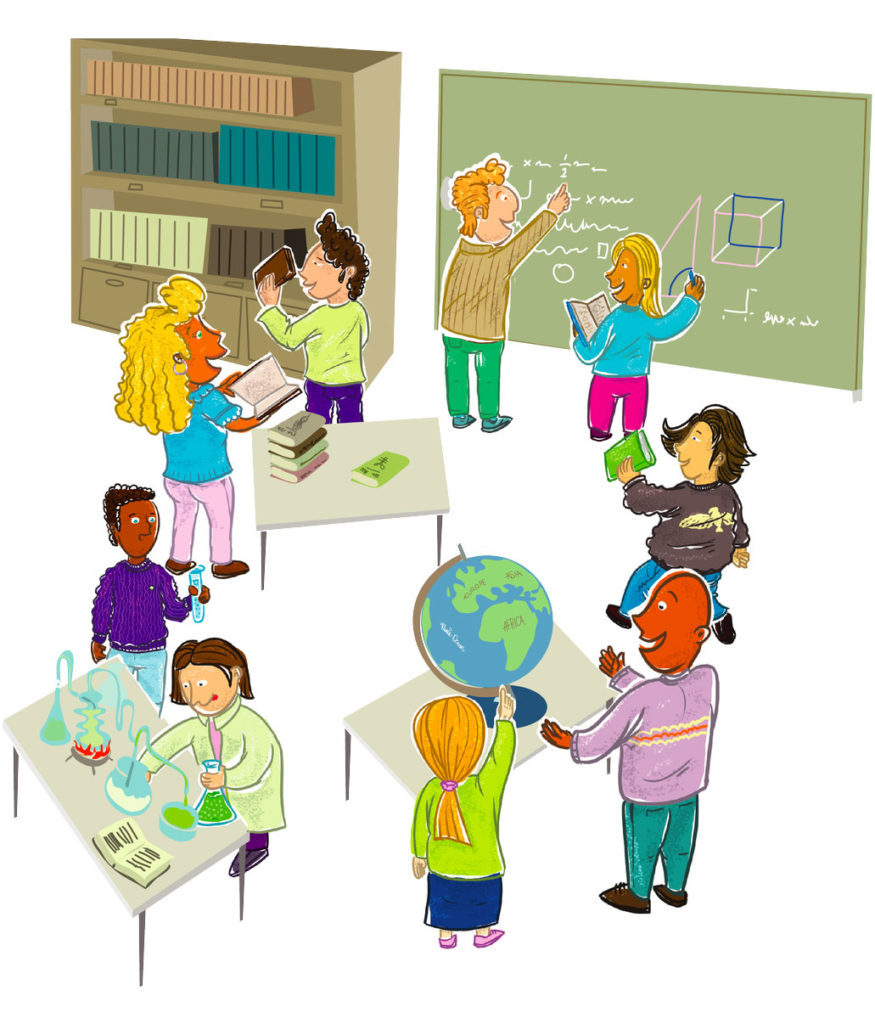
Schools do more than teaching knowledge and skills to students. A school is also the first institution that pupils enter at an early age, and it is a community that socializes the students, strongly influencing their attitudes and values – and those of staff members too. In school, students spend most of their time in class with their teachers and peers. Thus, if you, as the principal, want your school to become more democratic, it is essential that you seek to include what takes place in the classroom, involving students and teachers.
As principal, you ought to keep out of the teachers’ business in the classroom, and in some countries, you are not even allowed to intervene. Let us hope that your teachers have been trained to encourage their students to participate in decision-making and that they take responsibility to for developing the class community and facilities as best as possible. From the teachers’ point of view, it makes all the difference if they are left alone with such efforts, or if they know that their school leader not only strongly approves of their democratic approach, but is also willing to support them with all his means. Learning about democracy in school requires a holistic school approach that amounts to more than an addition of initiatives in some, or even all, classes. Teachers need opportunities to share and reflect their experiences and receive new input and ideas. In other words, a democratic school community is a learning community. This sequence offers you, the principal, ideas and tools to initiate, co-ordinate, contribute to, and support your school on its path to democracy.





